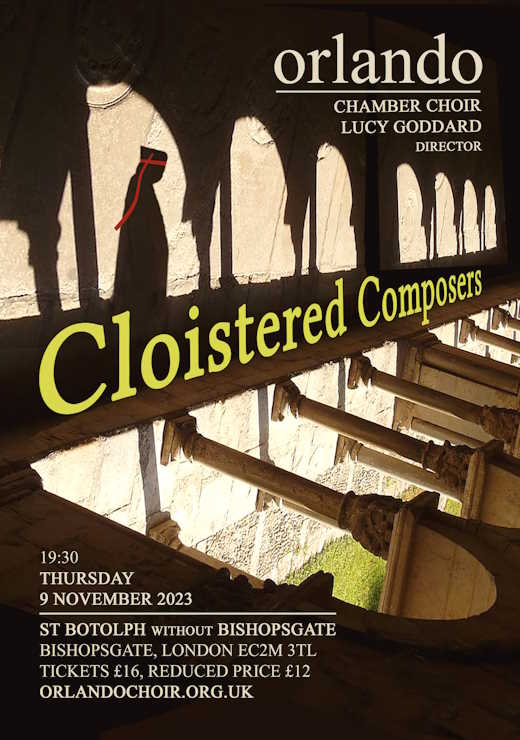Cloistered Composers
Thursday 9 November 2023, 19:30 – 21:30
St Botolph's Church [ map ]
Bishopsgate
London EC2M 3TL
Orlando Chamber Choir
Lucy Goddard, director
Aleotti, Assandra, Cozzolani, Leonarda, Vizzana – few people will have heard their names before. These Renaissance composers chose convent life over secular society’s traditional tasks. In the safety of the cloisters’ shadows they could follow their faith, enjoy an excellent education and avoid an arranged marriage to a partner of their family’s political preference.
In return, they provided their abbeys with polyphony aplenty, gaining local notoriety as organists, singers, directors and composers. Aleotti’s un-convent-ionally flamboyant madrigals were highly regarded; Leonarda was nicknamed the “Muse of Novara”; and Cozzolani’s choir of nuns, the “white and melodious swans”, were hailed as the best singers in Italy.
Patriarchal prejudice restricted these women’s reputations. Adverse Archbishops and contrary Cardinals found their music frivolous, unfit for religious rites or public performance. The complexity of Aleotti’s compositions was criticised for “making holiness give way to pleasure”…
Orlando Chamber Choir sings these talented women’s wonderful works out of history’s shadows into the concert light.
To add contrasting colours, the programme also includes majestic mass excerpts and motets by De Victoria – who, being a man, could enjoy the protection of the priory as a priest yet travel free into the limelight as he pleased.
